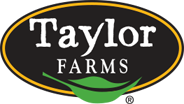Taylor Farms participated in the Walmart Sustainability Milestone Summit last week where suppliers who are committed to reducing greenhouse gas emissions from their operations and supply chains came together to discuss sustainability opportunities, initiatives, case studies, and best practices.
This new supplier opportunity, dubbed Project Gigaton, reaches a broad network of suppliers seeking to reduce emissions by 1 gigaton of greenhouse gas emissions (1 billion metric tons) by 2030 and we’re happy to be a part of it! A reduction of 1 gigaton of emissions is equivalent to taking more than 211 million passenger vehicles off roads for a year, according to the Environmental Protection Agency’s greenhouse gas equivalency calculator.

Nicole Flewell, director of sustainability for Taylor Farms, was asked to participate in the Summit. Flewell focused her presentation on food waste, and more specifically whole crop utilization through product development. We feel that no product should end up in the landfill when it can be avoided. Instead it can be utilized to make tasty products for our customers, distributed through food banks across the country, or diverted through animal feed, compost, or waste-to-energy.

Previously, unused aspects of crops were being left in the field and disked back in for nitrogen development, or recycled in the processing plant. Today, we have the ability to use nearly the entirety of the crop, moving it up in the waste hierarchy, and all remaining by-product is recycled through animal feed or compost.
Taylor Farms also diverts potential food waste by donating 12,800,000 servings of food each year to employees, our local community, and food banks.
In addition, Taylor Farms chopped salad kits and stir fry kits give consumers precise portions of a variety of ingredients that allow them to create complex salads and dishes easily with little-to-no food waste.
We deliver fresh, healthy foods to our consumers and we’re always trying to do it in a sustainable way, recognizing our responsibility to future generations, which is why we’re so glad to be able to take part in events and programs like Project Gigaton that prioritize and encourage environmentally-friendly production practices.

Recent News
- September 2, 2020Five Flavorful Recipes for the Three-Day-Weekend!
- September 1, 2020Just Add Protein: Easy Recipes To Elevate Your Favorite Salad Kits
- August 24, 20203 Fun and Easy Back To School Recipes
- July 16, 2020The Flavor of Fresh with a Summer full of Salads
- July 2, 2020Summer of Salads
- July 2, 2020Five Flavorful Dishes for The Fourth of July
